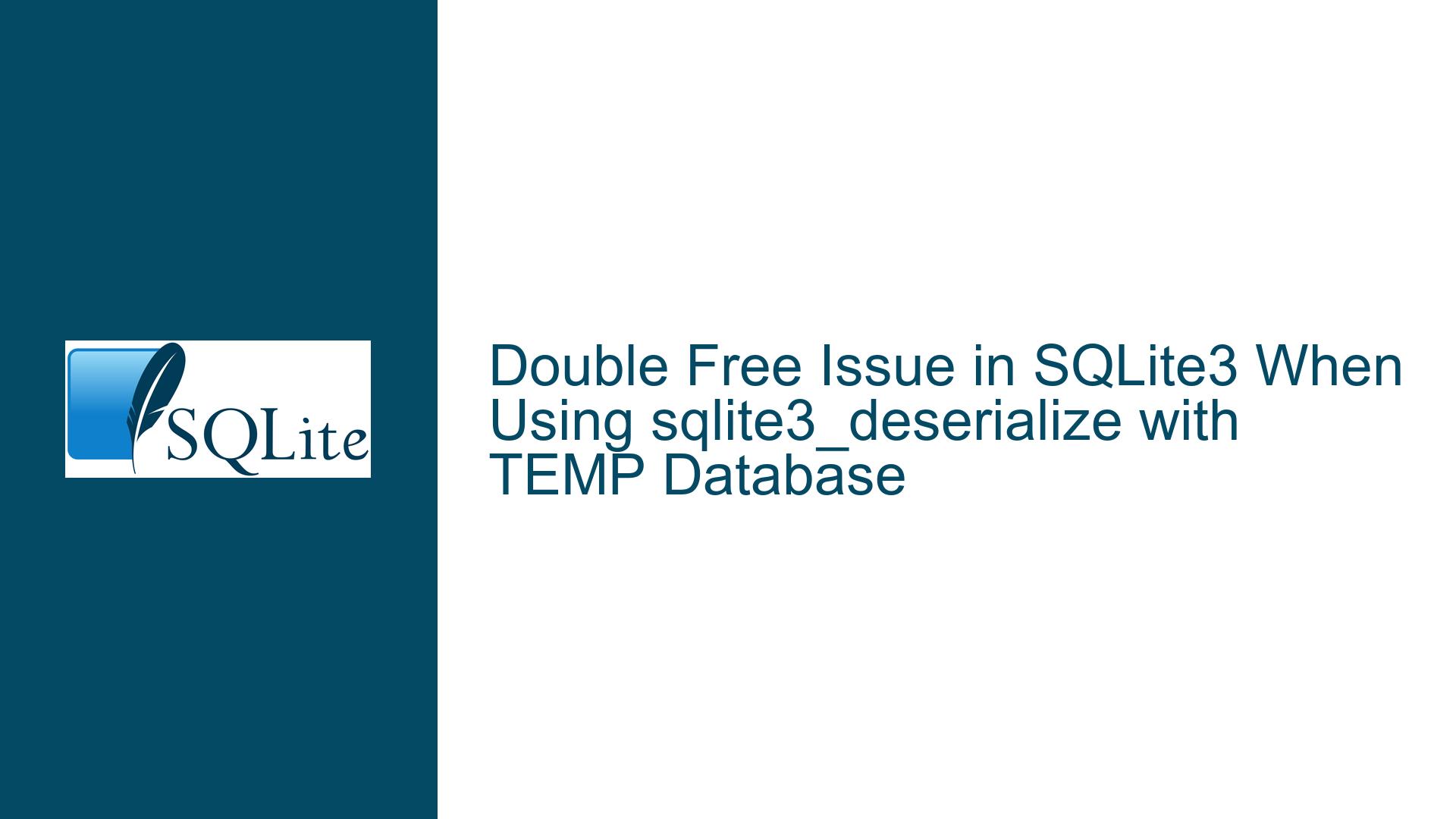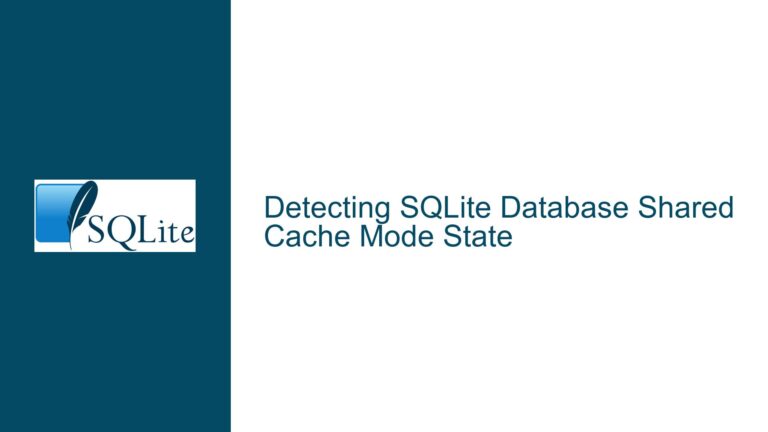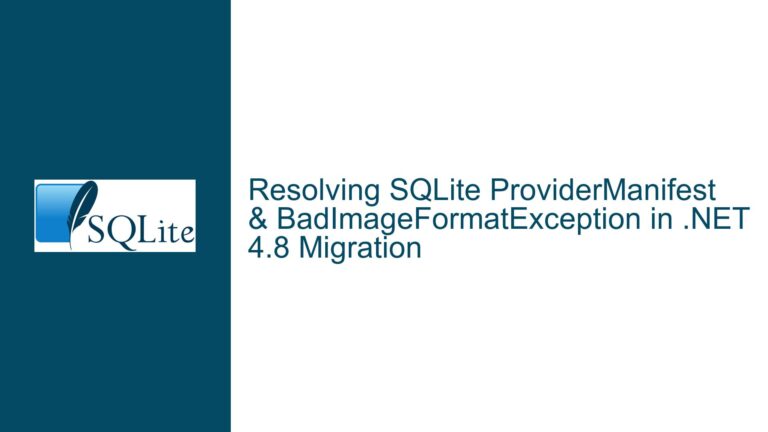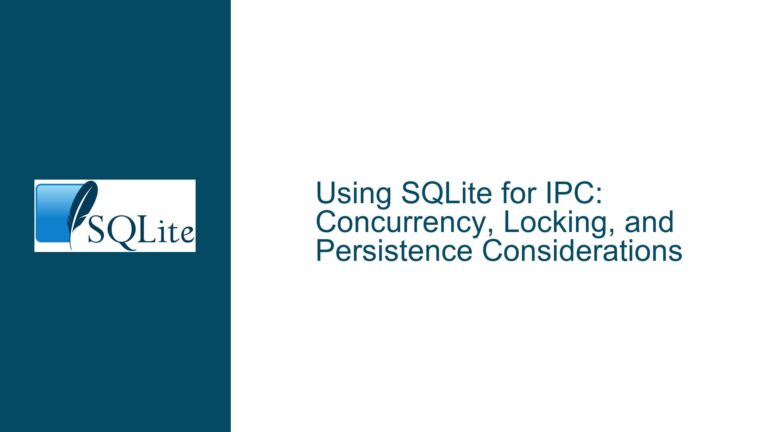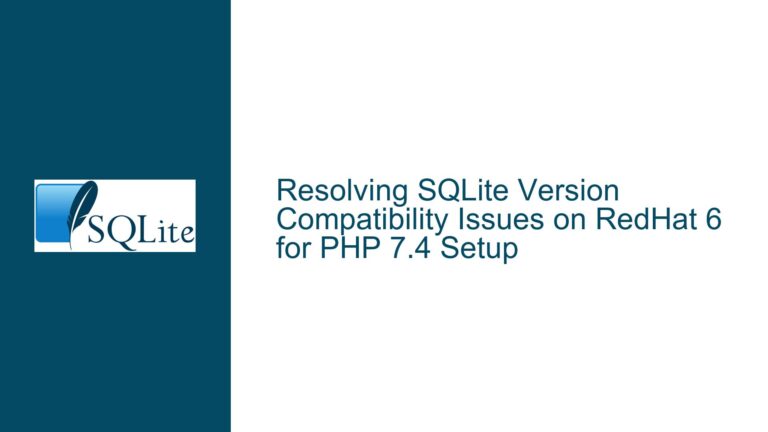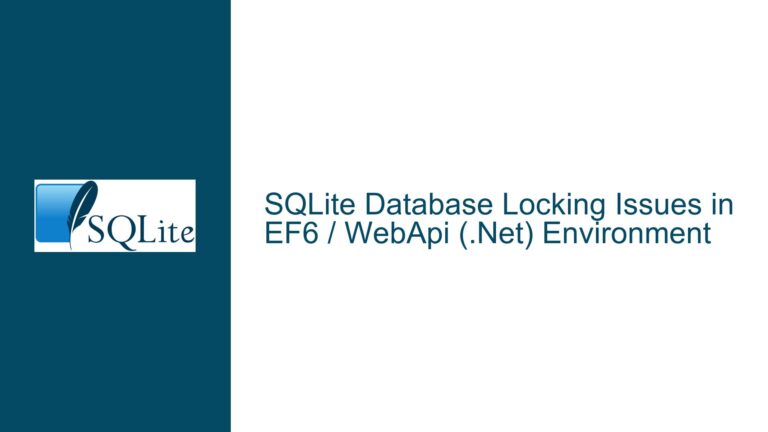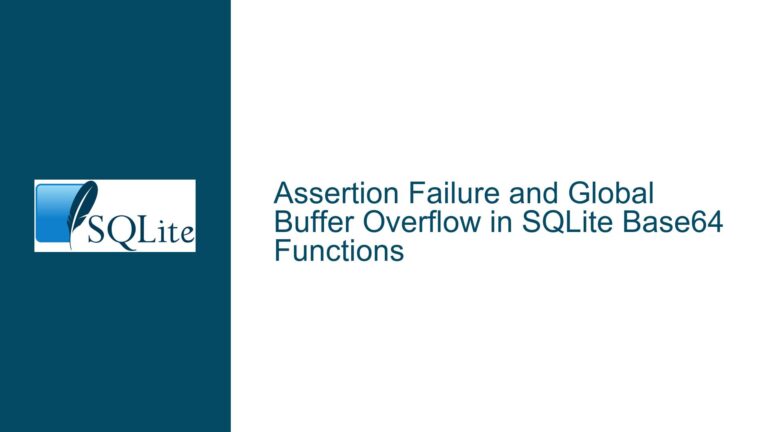Double Free Issue in SQLite3 When Using sqlite3_deserialize with TEMP Database
Issue Overview: Double Free Detected in SQLite3 During Database Close
The core issue revolves around a double free error encountered when using the sqlite3_deserialize function in SQLite3, specifically when attempting to deserialize data into the TEMP database. The error manifests as a runtime crash with the message free(): double free detected in tcache 2, which is also flagged by tools like Valgrind during the sqlite3_close operation. This issue arises in a scenario where a database is serialized from the main database and then deserialized into the TEMP database. The problem is not immediately obvious because the TEMP database is treated differently by SQLite3, and the sqlite3_deserialize function does not handle it correctly due to a lack of special handling for TEMP databases in the SQLite3 codebase.
The issue is further complicated by the fact that the TEMP database is a special case in SQLite3. It is used for temporary tables and other transient data, and its lifecycle is tied to the database connection. When sqlite3_deserialize is used to load data into the TEMP database, the memory management logic within SQLite3 fails to account for the unique behavior of the TEMP database, leading to a double free error when the database connection is closed. This is exacerbated by the fact that the SQLite3 test suites do not include any test cases for deserializing into the TEMP database, meaning this edge case has likely never been exercised or validated.
Possible Causes: Misalignment Between sqlite3_deserialize and TEMP Database Handling
The root cause of the double free issue lies in the misalignment between how sqlite3_deserialize manages memory and how the TEMP database is handled internally by SQLite3. When sqlite3_deserialize is called with the SQLITE_DESERIALIZE_FREEONCLOSE flag, it assumes responsibility for freeing the memory associated with the deserialized data when the database connection is closed. However, the TEMP database has its own memory management logic, which conflicts with the assumptions made by sqlite3_deserialize.
The TEMP database is designed to be transient, and its memory management is tightly coupled with the lifecycle of the database connection. When data is deserialized into the TEMP database, SQLite3 does not properly account for the fact that the memory for the deserialized data is already being managed by sqlite3_deserialize. As a result, when the database connection is closed, both the TEMP database’s internal memory management logic and sqlite3_deserialize attempt to free the same memory, leading to a double free error.
Additionally, the issue is compounded by the fact that the TEMP database is not treated as a regular database by SQLite3. It has special handling for schema changes and other operations, which are not fully compatible with the sqlite3_deserialize function. This misalignment results in unexpected behavior, such as queries failing to recognize tables that have been deserialized into the TEMP database unless additional modifications are made to the schema.
Troubleshooting Steps, Solutions & Fixes: Addressing the Double Free Issue in sqlite3_deserialize
To resolve the double free issue when using sqlite3_deserialize with the TEMP database, several steps can be taken. The first and most straightforward solution is to avoid deserializing data into the TEMP database altogether. Instead, deserialize the data into the main database or another named database. This approach avoids the special handling required for the TEMP database and ensures that the memory management logic of sqlite3_deserialize aligns with the database’s internal memory management.
If deserializing into the TEMP database is necessary, a workaround can be implemented by manually managing the memory for the deserialized data. Instead of using the SQLITE_DESERIALIZE_FREEONCLOSE flag, the memory for the deserialized data can be allocated and freed manually. This approach requires careful handling to ensure that the memory is not freed twice, but it avoids the conflict between sqlite3_deserialize and the TEMP database’s memory management logic.
Another potential solution is to modify the SQLite3 source code to add special handling for the TEMP database in the sqlite3_deserialize function. This would involve updating the memory management logic to account for the unique behavior of the TEMP database and ensuring that the memory for the deserialized data is only freed once. This approach requires a deep understanding of the SQLite3 codebase and should only be attempted by experienced developers.
In addition to these solutions, it is important to thoroughly test any changes to ensure that they do not introduce new issues. This includes adding test cases for deserializing into the TEMP database to the SQLite3 test suites. By doing so, future releases of SQLite3 can avoid similar issues and ensure that the sqlite3_deserialize function works correctly with all types of databases, including the TEMP database.
Finally, developers should be aware of the limitations and special handling required for the TEMP database when using sqlite3_deserialize. By understanding the unique behavior of the TEMP database and the potential pitfalls of using sqlite3_deserialize with it, developers can avoid issues like the double free error and ensure that their applications work correctly with SQLite3.
In conclusion, the double free issue when using sqlite3_deserialize with the TEMP database is a complex problem that requires careful handling. By avoiding deserializing into the TEMP database, manually managing memory, or modifying the SQLite3 source code, developers can resolve the issue and ensure that their applications work correctly. Additionally, thorough testing and an understanding of the TEMP database’s unique behavior are essential for avoiding similar issues in the future.
